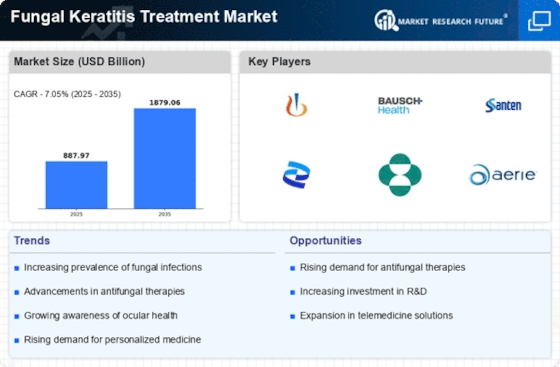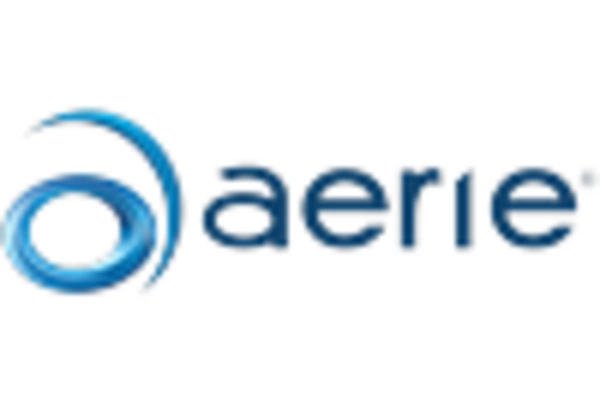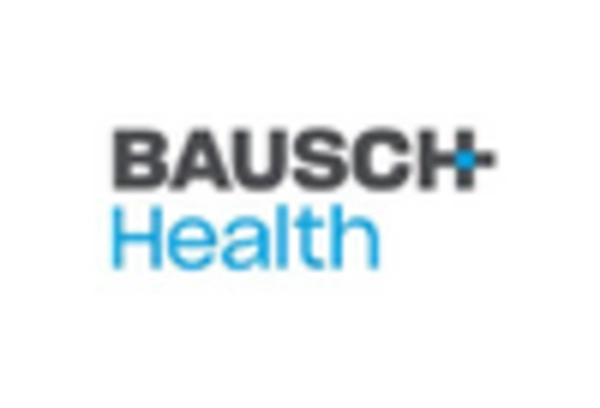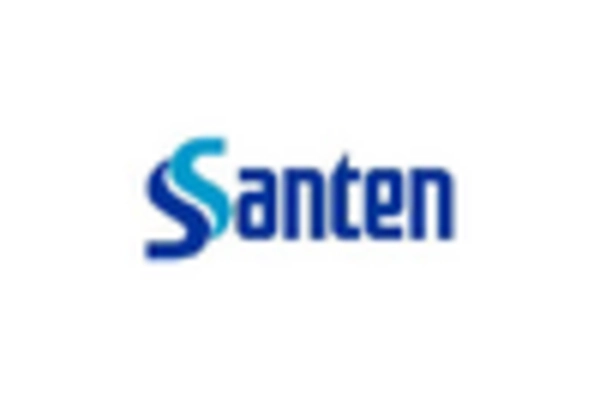Expansion of Healthcare Infrastructure
The expansion of healthcare infrastructure is a significant driver for the Fungal Keratitis Treatment Market Industry. Improved healthcare facilities and access to eye care services are essential for the timely diagnosis and treatment of fungal keratitis. Investments in healthcare infrastructure, particularly in developing regions, are likely to enhance the availability of specialized eye care services. This expansion includes the establishment of eye hospitals, clinics, and diagnostic centers equipped with advanced technologies. As healthcare systems evolve, the capacity to manage ocular diseases, including fungal keratitis, is expected to improve. Consequently, this growth in healthcare infrastructure may lead to increased patient referrals and treatment uptake, thereby positively impacting the Fungal Keratitis Treatment Market Industry.
Increasing Awareness of Fungal Keratitis
The rising awareness regarding fungal keratitis is a pivotal driver for the Fungal Keratitis Treatment Market Industry. Educational campaigns and initiatives by health organizations have led to a better understanding of the disease among healthcare professionals and the general public. This heightened awareness is likely to result in earlier diagnosis and treatment, which could potentially reduce the incidence of severe complications associated with fungal keratitis. As a result, the demand for effective treatment options is expected to increase. Furthermore, the prevalence of risk factors such as contact lens usage and agricultural exposure is being recognized, which may further propel the market. The combination of increased awareness and the need for timely intervention suggests a promising outlook for the Fungal Keratitis Treatment Market Industry.
Rising Incidence of Ocular Surface Diseases
The increasing incidence of ocular surface diseases, including fungal keratitis, is a crucial driver for the Fungal Keratitis Treatment Market Industry. Factors such as environmental changes, increased exposure to pathogens, and a rise in immunocompromised individuals are contributing to this trend. According to recent estimates, the prevalence of fungal keratitis is on the rise, particularly in regions with high agricultural activity. This surge in cases necessitates effective treatment solutions, thereby driving market growth. Furthermore, the correlation between ocular surface diseases and other systemic conditions highlights the need for comprehensive treatment approaches. As the burden of ocular surface diseases continues to escalate, the Fungal Keratitis Treatment Market Industry is poised for significant expansion.
Growing Investment in Research and Development
Growing investment in research and development (R&D) is a vital driver for the Fungal Keratitis Treatment Market Industry. Pharmaceutical companies and research institutions are increasingly focusing on developing novel antifungal agents and treatment strategies. This trend is fueled by the recognition of the unmet medical needs in treating fungal keratitis, particularly in resistant cases. Enhanced funding for R&D initiatives is likely to lead to breakthroughs in treatment options, including combination therapies and personalized medicine approaches. Moreover, collaborations between academia and industry are fostering innovation in the field. As R&D efforts intensify, the Fungal Keratitis Treatment Market Industry is expected to benefit from the introduction of more effective and targeted therapies.
Technological Advancements in Treatment Modalities
Technological advancements in treatment modalities are significantly influencing the Fungal Keratitis Treatment Market Industry. Innovations in antifungal therapies, including the development of new drugs and delivery systems, are enhancing treatment efficacy. For instance, the introduction of novel antifungal agents that target specific fungal pathogens is likely to improve patient outcomes. Additionally, advancements in surgical techniques, such as corneal transplantation and the use of amniotic membrane grafts, are providing new avenues for treatment. The market is also witnessing the integration of telemedicine, which facilitates remote consultations and follow-ups, thereby improving access to care. These technological developments not only enhance treatment options but also contribute to the overall growth of the Fungal Keratitis Treatment Market Industry.
















